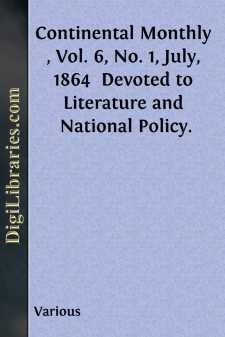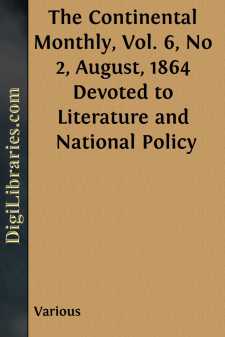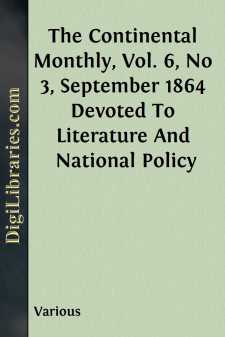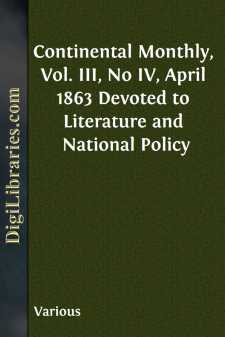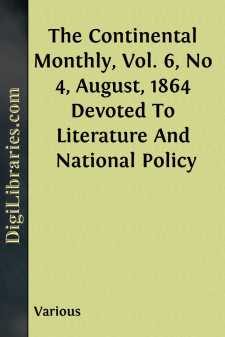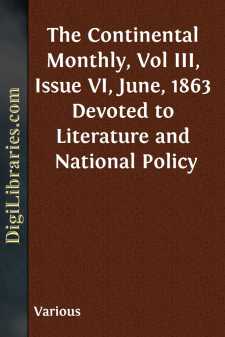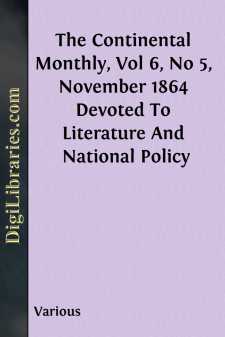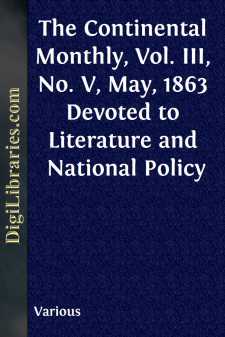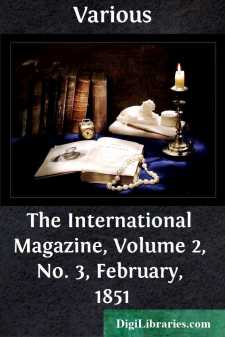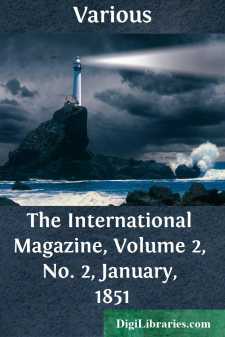Categories
- Antiques & Collectibles 13
- Architecture 36
- Art 48
- Bibles 22
- Biography & Autobiography 813
- Body, Mind & Spirit 142
- Business & Economics 28
- Children's Books 14
- Children's Fiction 11
- Computers 4
- Cooking 94
- Crafts & Hobbies 4
- Drama 346
- Education 46
- Family & Relationships 57
- Fiction 11829
- Games 19
- Gardening 17
- Health & Fitness 34
- History 1377
- House & Home 1
- Humor 147
- Juvenile Fiction 1873
- Juvenile Nonfiction 202
- Language Arts & Disciplines 88
- Law 16
- Literary Collections 686
- Literary Criticism 179
- Mathematics 13
- Medical 41
- Music 40
- Nature 179
- Non-Classifiable 1768
- Performing Arts 7
- Periodicals 1453
- Philosophy 64
- Photography 2
- Poetry 896
- Political Science 203
- Psychology 42
- Reference 154
- Religion 513
- Science 126
- Self-Help 84
- Social Science 81
- Sports & Recreation 34
- Study Aids 3
- Technology & Engineering 59
- Transportation 23
- Travel 463
- True Crime 29
Sort by:
by:
Various
SECOND PAPER. Having, in the preceding paper, described the general organization of an army, we proceed to give a succinct account of some of the principal staff departments, in their relations to the troops. Army organization—notwithstanding the world has always been engaged in military enterprises—is of comparatively recent institution. Many of the principles of existing military systems date no...
more...
by:
Various
SECOND PAPER. As a nation we are fast losing that reverence for the powers that be which is enjoined by Holy Writ, and without which no form of government can be lasting, no political system can take a firm hold upon the affections of the people. The opposition press teems with vituperation and personal abuse of those whom the people themselves have chosen to control the public policy and administer...
more...
by:
Various
OUR DOMESTIC AFFAIRS. Not of those affairs which are domestic in a broad, national sense; not of any of our home institutions, 'peculiar' or otherwise; not of politics in any shape, nor of railroads and canals, nor of interstate relations, reconstructions, amnesty; not even of the omnivorous question, The War, do I propose to treat under the head of 'Our Domestic Affairs;' but of a...
more...
by:
Various
THE WONDERS OF WORDS. Every nation has its legend of a 'golden age'—when all was young and fresh and fair—'comme les couleurs primitives de la nature'—even before the existence of this gaunt shadow of Sorrow—the shadow of ourselves—that ever stalks in company with us;—an epoch of Saturnian rule, when gods held sweet converse with men, and man primeval bounded with all...
more...
by:
Various
SOME USES OF A CIVIL WAR. War is a great evil. We may confess that, at the start. The Peace Society has the argument its own way. The bloody field, the mangled dying, hoof-trampled into the reeking sod, the groans, and cries, and curses, the wrath, and hate, and madness, the horror and the hell of a great battle, are things no rhetoric can ever make lovely. The poet may weave his wreath of victory for...
more...
by:
Various
THE VALUE OF THE UNION. II. Having taken a hasty survey, in our first number, of the value and progress of the Union, let us now, turning our gaze to the opposite quarter, consider the pro-slavery rebellion and its tendencies, and mark the contrast. We have seen, in glancing along the past, that while a benevolent Providence has evidently been in the constant endeavor to lead mankind onward and upward...
more...
by:
Various
THE PROGRESS OF LIBERTY IN THE UNITED STATES. There are three classes of persons in the loyal States of this Union who proclaim the present civil war unnecessary, and clamor for peace at any price: first, a multitude of people, so ignorant of the history of the country that they do not know what the conflict is about; secondly, a smaller class of better-informed citizens, who have no moral...
more...
by:
Various
THE GREAT PRAIRIE STATE. I should not wonder if some of your readers were less acquainted with this Western Behemoth of a State than with the republic of San Marino, which is about as large as a pocket handkerchief. The one has a history, which the other as yet has not, and of all people in the world, our own dear countrymen—with all their talk about Niagara, and enormous lakes, and prodigious...
more...
by:
Various
THOMAS CHATTERTON. In the history of English literature there is no name that inspires a profounder melancholy than that of the "marvellous boy" Chatterton, of whom it must be said that in genius he surpassed any one who ever died so young, and that in suffering he had larger experience than almost any one who has lived to old age. Shelley says of him:"'Mid others of less note came one...
more...
by:
Various
EDMUND BURKE. Edmund Burke is the most illustrious name in the political history of England. The exploits of Marlborough are forgotten, as Wellington's will be, while the wisdom and genius of Burke live in the memory, and form a portion of the virtue and intelligence of the British nation and the British race. The reflection of this superior power and permanence of moral grandeur over that which,...
more...


